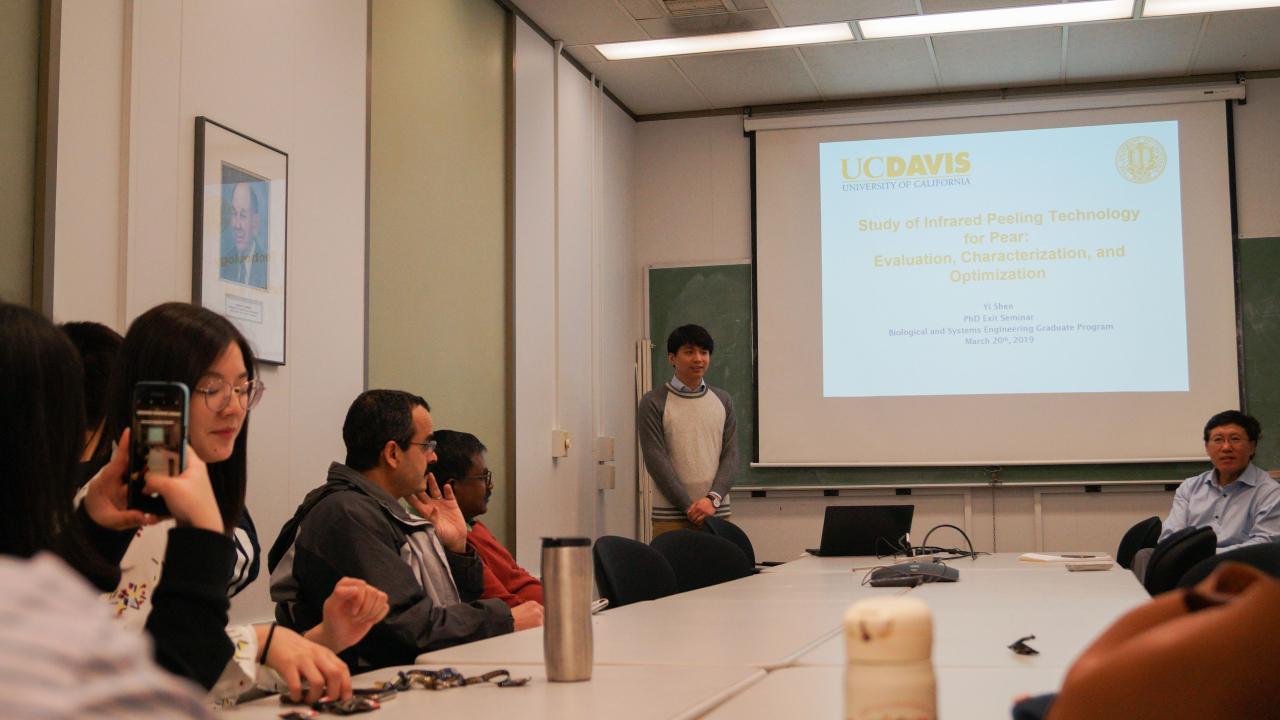
Ph.D Candidate Yi Shen Discusses IR Peeling of Pears in Exit Seminar
2045 Bainer Hall was full of current biological and agricultural engineering graduate students and faculty on Wednesday, March 20th who gathered to listen to Yi Shen present the research he has been conducting as a Ph.D candidate. Shen began his studies in the Department of Biological and Agricultural Engineering in 2013 under the guidance of Dr. Zhongli Pan.
Shen first described why he chose pear processing.
“California is the largest producer of pears,” Shen said. Canned pears make up about 60% of processing–all of which need to be peeled before they are canned.
Shen explained that the conventional method for pear peel removal involves the use of lye. There are significant drawbacks to using lye such as excessive water and chemical usage as well as high salinity and organic load in the wastewater.
With this in mind, Shen sought to find a more sustainable way to remove the peel using Infrared (IR) heating.
IR heating’s potential gains are dramatic, such as a significant decrease in water and chemical waste. But it is not without its challenges.
Pears that are not of the correct firmness are not suitable for IR peeling. Other factors that Shen studied were system requirements, peeling mechanisms, potential improvements, and sustainability. To achieve this he used experimental and mathematical modeling.
What he found was substantial. The results indicated that the potential for IR heating are more than just a supplement to traditional peeling. Instead, using IR heating to peel pears is a promising replacement to the conventional lye peeling.
